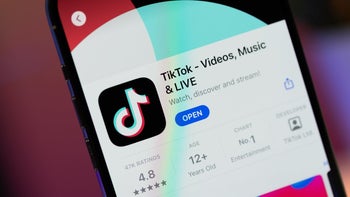TikTok's US fate still uncertain, but EU politicians love the app

TikTok's popularity among European politicians rises despite security fears, reads a recent report by Reuters.
And can you blame them? After all, politicians care about votes: and if you want votes, you need young people. If you need young people – you know where this is going, don't you – you need TikTok, end of story.
The report outlines Simon Harris' TikTok usage. When he became Ireland's prime minister-in-waiting in March, he turned to a favored platform of his: TikTok. Ireland' youngest taoiseach (a local word for "Irish prime minister") made a "Thank you" video for his 95,000 followers.
Harris is just one of the many European politicians who are embracing TikTok. That's a trend – European politicians are turning to TikTok, believing that the importance of connecting with younger voters surpasses the alleged security worries.
Similar fears have haunted US lawmakers for years – that's why less than a month ago, the US House of Representatives voted in favor of a bill that could ban TikTok in the United States.
The goal is ByteDance to sell its interests in the viral short video app, or face a ban in the US. If everything goes to plan (the bill passes and Joe Biden signs it), ByteDance will have a 165-day deadline to divest from TikTok. Should it not pass the control of TikTok to an American-based company, US app stores (like Apple's, Google's and Samsung's) would be prohibited from offering TikTok in the country.
Overseas, the EU's turn to TikTok isn't without a cause – European elections draw near and younger votes are needed. Apart from early adopter Harris, who operates a TikTok account since 2021, another notable example is French President Emmanuel Macron, who boasts 4 million followers since joining TikTok in 2020.
In Germany, the embrace of TikTok by senior politicians is a newer trend, with Health Minister Karl Lauterbach becoming the country's first minister to open an account in March. "Revolution at TikTok: it starts today," he said. Chancellor Olaf Scholz in February also suggested his government open a TikTok account.
The TikTok generation is extremely important for Germany, as 16-year-olds over there can vote in the June European elections.
Also, TikTok is seen as a major news source for younger people.
And can you blame them? After all, politicians care about votes: and if you want votes, you need young people. If you need young people – you know where this is going, don't you – you need TikTok, end of story.
Harris is just one of the many European politicians who are embracing TikTok. That's a trend – European politicians are turning to TikTok, believing that the importance of connecting with younger voters surpasses the alleged security worries.
Germany's security agencies, for example, have warned against using the app over concerns it could share data with China's government or be used to influence users.
Similar fears have haunted US lawmakers for years – that's why less than a month ago, the US House of Representatives voted in favor of a bill that could ban TikTok in the United States.
The goal is ByteDance to sell its interests in the viral short video app, or face a ban in the US. If everything goes to plan (the bill passes and Joe Biden signs it), ByteDance will have a 165-day deadline to divest from TikTok. Should it not pass the control of TikTok to an American-based company, US app stores (like Apple's, Google's and Samsung's) would be prohibited from offering TikTok in the country.
Overseas, the EU's turn to TikTok isn't without a cause – European elections draw near and younger votes are needed. Apart from early adopter Harris, who operates a TikTok account since 2021, another notable example is French President Emmanuel Macron, who boasts 4 million followers since joining TikTok in 2020.
Also, TikTok is seen as a major news source for younger people.













Things that are NOT allowed: